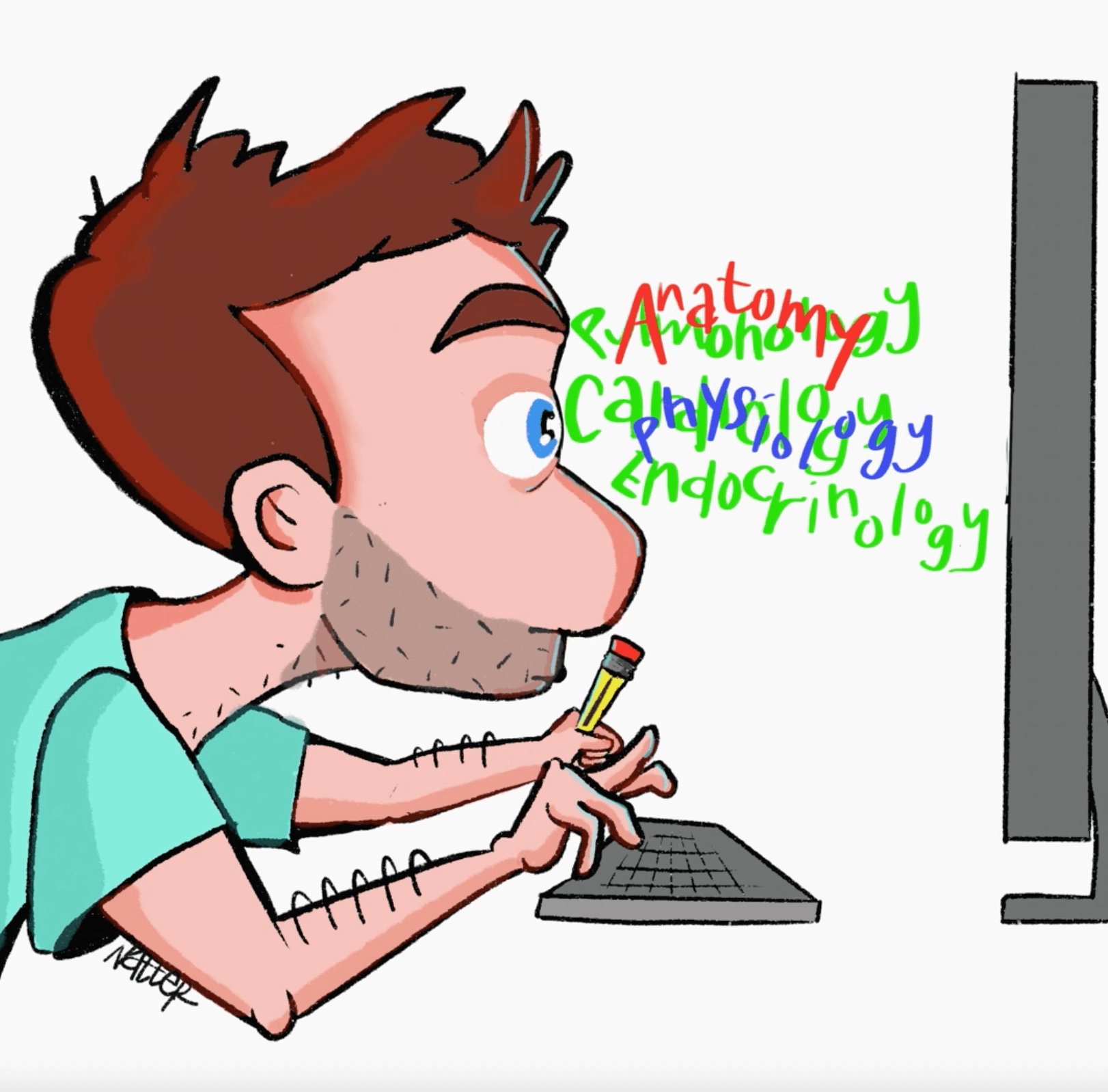Studying for your calculus exam or the MCAT is a very different experience than studying for your medical school exams, Shelf exams, and Steps. The inflection points of medical training often are marked by high stakes multiple choice exams that can stoke the flames of even the most zen among us (looking at you psychiatry). While these exams often only take up a single day in our education, many of our future endeavors and careers are hinged on how well we perform on these exams. Knowing exactly how to study for these exams is essential to succeeding. Today we will discuss some key study tips for medical school and residency to help you prepare as effectively as possible.
Mindset
It is key to understand that the most intellectually-challenging material that you are tested on is behind you. It was back in your pre-medical courses. The information we are tested on in medical school is hard. However, most of it does not entail applying knowledge in the same way as a physics exam would where you need to correctly employ a formula or calculate gravitational force. The overwhelming majority of medical school exams content is based on the ability to master a large breadth of information that has been flowing at you at an extremely fast rate (see drinking from a fire hydrant). For this reason, we must change our mindset in how we approach the information. Being really smart will help, but you cannot rely solely on your intelligence which you may have done prior to medical school. You must put in the time to view (and review) the material. Be flexible and recognize you will likely have to study in a very different manner to what you are used to.
Make the Material Your Own
I always suggest against rote memorization. While we are learning this material to do well on the exam, at the end of the day we want to master the material to do well for our patients. This means not only regurgitating information, but building a scaffolding to allow you to build skyscrapers of knowledge that sit on that firm foundation. I have found that the key component of doing this well, is by translating the raw material into your own language. For me, that’s a visual language. I literally drew out every lecture of medical school and to this day, in my final year of fellowship, I still conjure up those silly illustrations in my mind when thinking about medical physiology and disease. Once I figured out that my mind works best by drawing these illustrations and comics, the material became sticky. Sticky material hands around your hippocampus much easier. You may find that handwriting your notes in your own words is your language or creating a song or a mnemonic device. Whatever you language ends up being is the right one for you. But remember, do not be scared to switch it up if you recognize it is not working.
Always Ask Why
Medicine is vast. When you study, especially when studying using question banks, always ask yourself why the right answer is the right answer and why the wrong answers are wrong. If you can explain to yourself why things make sense, you will be better able to fit that chunk of information in that beautiful ecosystem of medical knowledge that lives in your dome.
Unstring Your Bow
I have found that constantly cramming is counterproductive. It may seem counterintuitive, but one of my biggest study tips for medical school is knowing when you need a break and forcing yourself to take one. Think of your brain as a beautiful plant that you want to grow tall green, sprouting new knowledge leaves every day. The plant needs water, sunlight, CO2, all the good things. Allow your brain this nuritionment with a healthy diet, exercise, socialization, sleep, and obviously good study habits.
Remember, You are More than a Test Score
In medical training, we spend the majority of our lives learning, studying, and preparing for exams. For this reason, many of us inappropriately hinge our self worth on the scores we make on those exams. I’ve done this and I’m sure many of you have as well. Don’t. We are more than our test scores. Understand that these tests are designed to demonstrate minimal competency, this does not correlate to your IQ nor to the quality of doctor you will become. Tests beget tests. Never let your test score make you feel bad about yourself, your abilities, or your future.




